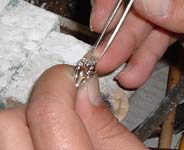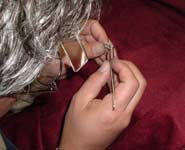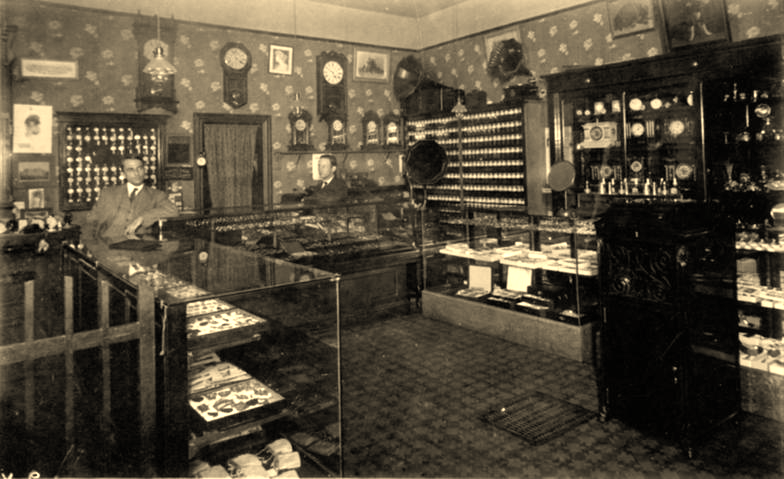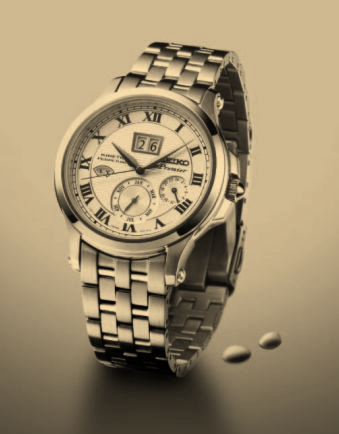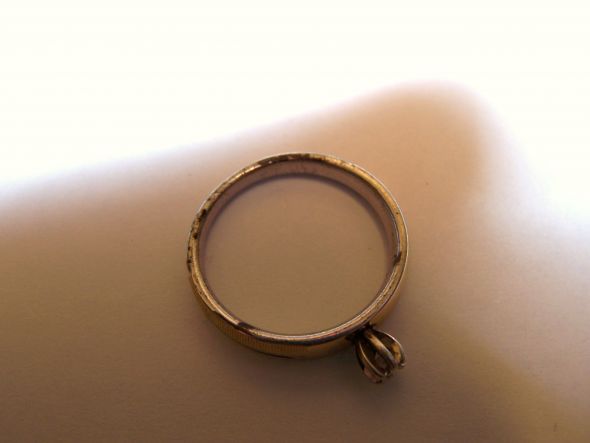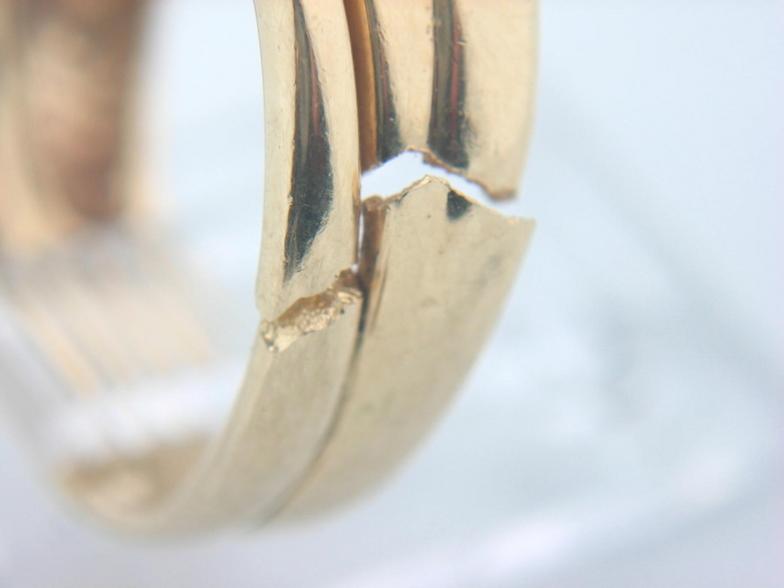Give Us a Call 260-925-3113
or visit us at:
108 East 7th Street
Historic Downtown Auburn Indiana
Did you know that a professional jeweler should check stone set rings at the very least twice a year? This is of particular importance if they are worn everyday. Periodic inspections will insure the stones aren't loose and that the prong tips aren't too worn. We offer this service free of charge and will run the rings through our ultrasonic cleaner at the same time.
Caring for jewelry is a necessary part of owning fine jewelry. With proper care, your jewelry will bring you continued satisfaction of ownership over many years.
Some tips to remember when caring for your jewelry include:
• Avoid wearing fine jewelry when you're performing manual labor tasks, such as housework and gardening.
• Do not wear your jewelry to bed. Tossing and turning can cause chains to stretch and break, and prongs on rings to catch and possibly break.
• Do not wear your jewelry in the shower or while bathing. Water beating down can cause chains to stretch, and some bathing soap can be harsh and cause a film to appear and buildup on stones. Take note especially if you have hard water.
• Clean your jewelry periodically. This will ensure its fine appearance and will help it last longer. To clean soak your rings overnight in a solution of warm, mild soapy water. In the morning simply brush them with a soft toothbrush and rinse. They will sparkle like new.
• Use a soft brush to help remove dirt on the prongs of larger gem jewelry.
• Use plain alcohol to help reduce greasy film on diamond jewelry prior to any other cleaning done.
• Take rings off before using hand creams and lotions, to prevent a buildup of oil and the dirt it attracts.
• Put your jewelry items on after you've applied makeup, perfume and hairspray. Chemicals in these products are destructive to gold and silver as well as many kinds of gems.
• Store jewelry away from sunlight and extreme heat as this may fade some gemstones.
Tips for general care of your pearl jewelry:
Cultured pearls are precious jewels and should be treated as such. They're also the products of living creatures. Cultured pearls are formed when an irritant is introduced into a mollusk. The mollusk secretes a substance called nacre, which covers the irritant and produces the pearl. Nacre gives pearls the rainbow of colors and luster that makes these gemstones so treasured, but its delicate nature also makes pearls particularly susceptible to damage. For this reason you should be extra careful with your cultured pearl jewelry.
• Apply cosmetics, hair sprays and perfume before putting on any pearl jewelry. When you remove the jewelry, wipe it carefully with a soft cloth to remove any traces of these substances.
• You can also wash your pearl jewelry with mild soap and water. Do not clean cultured pearls with any chemicals, abrasives or solvents. These substances can damage your pearls.
• Do not toss your cultured pearl jewelry carelessly into a purse, bag or jewel box. A pearl's surface is soft and can be scratched by hard metal edges or by the harder gemstones of other jewelry pieces.
• Place cultured pearl jewelry in a chamois bag or wrap them in tissue when putting them away.
• Perspiration, cosmetics, and perfume can damage pearls. Therefore, they should be cleaned by gently rubbing with a damp cloth. A brush should not be used because it could scratch the surface of the pearl. Take care not to get them wet, because water could get into the drill hole and cause the pearl to discolor. Also, if the thread becomes overly wet, the dampness can cause deterioration of the string. Restring your pearls periodically. Pearls should always be strung with knots tied in the space separating each pearl to prevent them from rubbing against each other or from scattering in the event the string would break.
Jewelry Care
Chemicals and Fine Jewelry
Exposing your gold jewelry to Chlorine, Bromine and Bleach can cause a chemical reaction between these chemicals and the alloy metals in gold jewelry. We recommended that people do not swim in chlorinated pools or hot tubs while wearing their jewelry. Your gold jewelry will turn black and small hairline cracks will develop after only a few hours. This has erroneously been blamed on poor quality workmanship. In reality, it was due to a long-term exposure to Chlorine and Bromine. We also strongly recommend against handling bleach if the ring cannot be rinsed off immediately. Research has shown that when a gold ring was placed in common household chlorine bleach for 36 hours, the end result was complete disintegration
Why Does Gold Discolor Fingers?
You may think that faulty manufacturing or under karating might be the problem when a ring "turns black", or discolors the skin and clothing. However, that is not the case. You can understand these causes, and how to prevent them.
The most common reason is metallic abrasion, caused by makeup on skin or clothing. Cosmetics often contain compounds harder than the jewelry itself, which wear or rub off very tiny particles. Very finely divided metal always appears black rather than metallic, so it looks like a jet-black dust. When this dust comes into contact with absorbent surfaces such as skin or clothing, it sticks, forming a black smudge. To prevent this, you should try switching cosmetics. If this is not possible, we recommend that you remove rings and other jewelry while applying them, and clean skin areas in contact with jewelry with soap and water.
Another cause is actual corrosion of the metals. Gold itself does not corrode, but its primary alloys of silver or copper will do so-forming very dark chemical compounds-under moist or wet conditions. When you perspire, fats and fatty acids released can cause corrosion of 14K gold, but especially 10K gold jewelry (due to the fact that 10K gold contains more alloy metal) when exposed to warmth and air. This problem can be worse in seacoast and semitropical areas, where chlorides combine with perspiration to form a corrosive element that discolors skin. Medications absorbed in the body may also act as corrosive agents and react to the alloy metals in jewelry. Smog fumes gradually attack jewelry and are evident as a tarnish that rubs off on the skin.
We suggest that you remove jewelry often and use an absorbent powder, free of abrasives, on skin that comes into contact with jewelry.
Even the design of jewelry can be an influence. Wide shanks have more surface area to contact abrasives or corrosives. Concave surfaces inside a shank form collection points that trap moisture and contaminants, also causing a type of dermatitis. You should remove all rings before using soaps, cleaning compounds or detergents, and clean your rings frequently. As well as solving the problem, you'll be amazed at how much better your rings look!
Copyright 2025 by Carbaugh Jewelers All rights reserved


